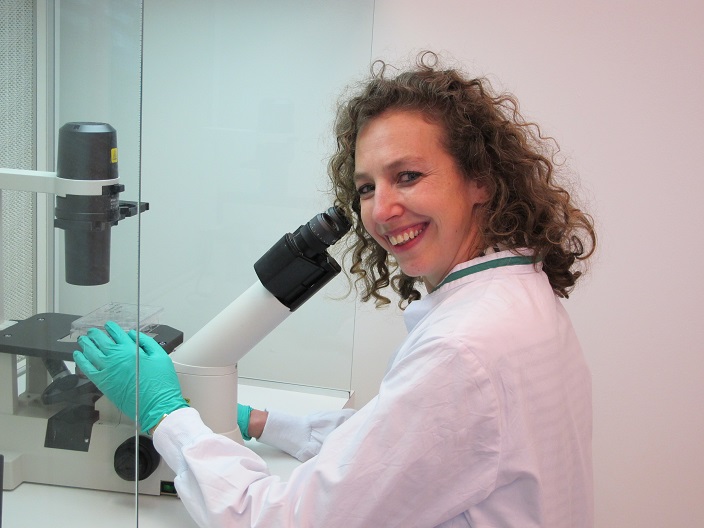Functional genomics
Functional genomics uses several tools to characterize genetic variants with an unknown effect (VUS) and functional characteristics of known pathogenic variants. Known models or new models will be used.
-
iPSC reprogramming
Pluripotent stem cells (PSCs), including embryonic stem cells (ESCs) and induced pluripotent stem cells (iPSCs), are able to self-renew indefinitely and differentiate into all three germ layers (mesoderm, endoderm, ectoderm). For iPSCs generation, various cell-types can be used, but most often Peripheral Blood Mononuclear Cells (PBMCs) and fibroblasts are used, since they can be relatively easily obtained.
We offer:
- Generation of iPSC cell lines from fibroblasts or PBMCs using episomal reprogramming (location Nijmegen)
- Analysis of pluripotency and differentiation capacity of iPSC clones
- Karyotyping analysis of iPSC clones
- Mycoplasma testing
Stemcell-derived models
- Human iPSC or human ESCs differentiation to cardiomyocytes
- Human iPSC or human ESCs differentiation to neurogenic precursors and differentiation to neuronal cells (location Nijmegen)
-
The zebrafish (Danio rerio) is an excellent model for functional genomics in general and the study of metabolic and cardiac phenotypes in particular. The main advantages of this vertebrate model are: external and rapid embryonic development, transparency of the larvae (imaging), large amount of offspring and high homology to mammalian organ systems and signaling pathways.
We offer:
- Morpholino-mediated knockdown
- Custom knock-out lines (CrisPR/Cas9)
- Custom knock-in lines (CrisPR/Cas9)
- Reporter lines (Tol2 transgenesis)
-
- Crisp/Cas
- DNA cloning, introduction of mutations and plasmid construction


When planning an experiment involving functional genomics, feel free to contact us for an initial consult.